Since people (myself included) like to put the "most important" or "subject" table first, you can accomplish what you're looking for by making the join between Events and Scores occur first and as an INNER JOIN:
SELECT
P.P_Id,
P.LastName,
P.FirstName,
IsNull(Sum(P.Points), 0) TotalPoints
FROM
Players P
LEFT JOIN (
Events E
INNER JOIN Scores S
ON E.Event = S.E_Id
AND E.Year = '2012'
) ON P.P_Id = S.Player
GROUP BY P.P_Id, P.LastName, P.FirstName -- no silly MYSQL implicit grouping for me!
ORDER BY TotalPoints DESC
The trick about enforcing join order is that really it's the location of the ON clause that does it—you can remove the parentheses and it should still work. But I prefer to use them because I think the extra clarity is a must.
It's also a perfectly valid way to enforce join order by putting your INNER JOINs first and the OUTER last. Only, you want the last table to be the one that dictates membership in the final set. So switching it to RIGHT JOIN will do the trick:
SELECT
P.P_Id,
P.LastName,
P.FirstName,
IsNull(Sum(P.Points), 0) TotalPoints
FROM
Events E
INNER JOIN Scores S
ON E.Event = S.E_Id
AND E.Year = '2012'
RIGHT JOIN Players P
ON S.Player = P.P_Id
GROUP BY P.P_Id, P.LastName, P.FirstName
ORDER BY TotalPoints DESC
I feel compelled to add that using different names for a column when it is PK vs. FK in different tables is in my mind a really bad violation of best practice. It should be "P_Id" in all tables, or "Player" in all tables, and not be inconsistent.
